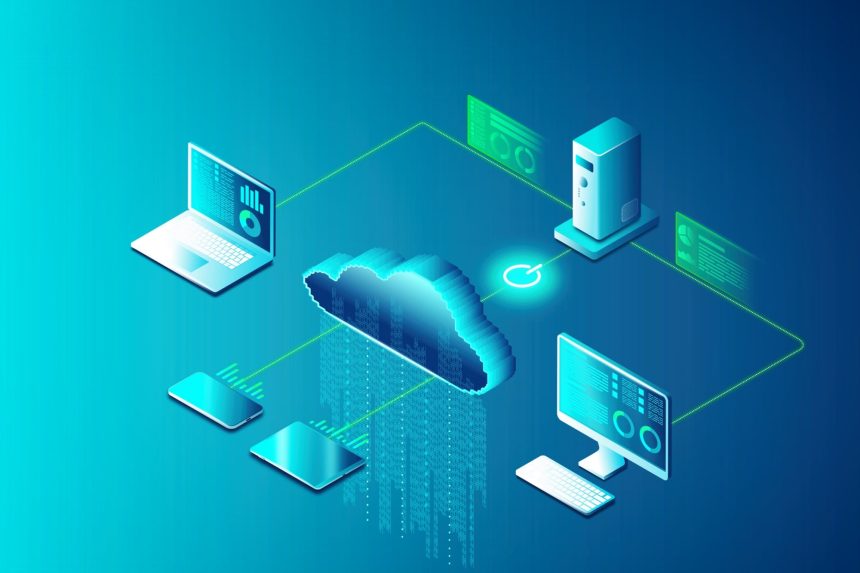Enterprise resource planning (ERP) is essential for increasing the productivity of organizations — from multinational corporations to small businesses.
Over the past few years, providers of ERP systems have been following the general trend in business platforms, and shifting their services to the cloud.
But what advantages does that offer? And why should you bother with ERP in the first place?
In this article, we’ll be taking an in-depth look at what ERP is, how it can benefit your business, and the advantages of cloud-based systems.
Related: The Complete Beginners Guide to Cloud ERP Small Businesses
What does ERP mean?
Enterprise resource planning is an umbrella term for the processes and workflows involved in coordinating your business’ project management, procurement, accounting and supply chain operations, risk management and compliance. It also covers budgeting and financial reports.
In short, ERP is all the organizational work involved in handling your business’ various resources.
ERP software is designed to help you centralize all these workflows. Instead of juggling numerous and confusing shared spreadsheets and databases, you have all the information involved in a central repository that all your team members can access.
Related: Choosing and Implementing ERP – Top Challenges Faced by Organizations
What is cloud-based ERP?
Cloud ERP means that enterprise resource planning software no longer lives on company-internal servers. In the past, team members had to sit at their workstations with an Ethernet connection to their business’ local network to access your ERP platform. These days are over.
Instead, cloud ERP solutions are hosted on the provider’s server. All you need to access them is an account and a password, no matter where you or your team members are.
Most of these solutions are subscription-based. Businesses pay a set sum every month to get access to the platform’s features and customer service. This means addressing issues and installing updates is easier than on-premise solutions.
Cloud-based ERP solutions have several other advantages over the traditional on-premise approach.
What are the advantages of cloud ERP?
To start with, cloud ERP allows you to access your system, data and analytics anytime and anywhere. Not only does this allow you to maintain maximum flexibility during remote work and business trips. It also provides an invaluable safeguard in unforeseen circumstances or extreme situations — such as the pandemic or natural disasters. No matter what happens or where you are, your data is safe in the cloud.
Another upside is that it offers enhanced security measures. With cybercrime on the rise, securing your company’s data is more important than ever. Cloud ERP providers guarantee high-level security and encryption, safeguarding your information for you.
A third crucial advantage is the easy scalability. With on-premise solutions, outgrowing their technical capabilities was a serious issue. That is not the case for cloud ERP. If your business thrives, it’s easy to add users or upgrade to another plan. There’s no longer a need to completely overhaul your ERP approach or pay for a new software provider.
Finally, cloud ERP also has the massive upside of integrating with other cloud-based business platforms and even IoT components. This helps you increase data flow, eliminate operational silos and make informed decisions to improve customer experience.
How to integrate cloud ERP with other business platforms
Regarding integrating cloud ERP with other business platforms, there are two options — native integrations and integration tools.
Native integrations are provided as a standard feature by the provider. That means the cloud ERP platform can immediately and directly link to other cloud-based business tools. However, this is limited to tools that the ERP vendor has selected and included in the functionalities.
In contrast, integration tools are Swiss army knives. They are made by third-party providers specializing in building data highways between cloud-based platforms, including ERP. Integrators like DCKAP, Zapier and IBM Connect are flexible and versatile and let you shape your own connections and network of business tools without having to worry about compatibility.
How to find a cloud ERP provider?
One of the trickiest challenges small businesses face with cloud ERP is how to find the right provider. There’s a huge range of vendors out there, which can make it difficult to pinpoint the one that best suits your current and likely future needs.
The first step in choosing the right ERP provider is actually outlining exactly what these needs are. You’ll need to specify who will be using it to enter and share data, what your current business processes are and how they could be improved, and whether there are any legacy systems you want to replace or continue using.
Once you have that set down and ranked in order of priority, you need to research cloud ERP providers in your niche. Find vendors that cater to other companies like yours in terms of industry and size. Check their reviews and testimonials. Then, compare pricing and see what best fits with your budget.
As a last step, you can book a demo or a call with a sales rep to answer any outstanding questions and ensure you have found the best solution for you.
Final thoughts
Cloud ERP solutions bring significant advantages to small businesses — from flexibility to scalability and inbuilt cybersecurity safeguards. It is well worth comparing vendors and figuring out how to best integrate your ERP platform with your existing network of business tools. While it will take time and resources, it will help you boost your efficiency and overall business productivity.
Read the full article here









